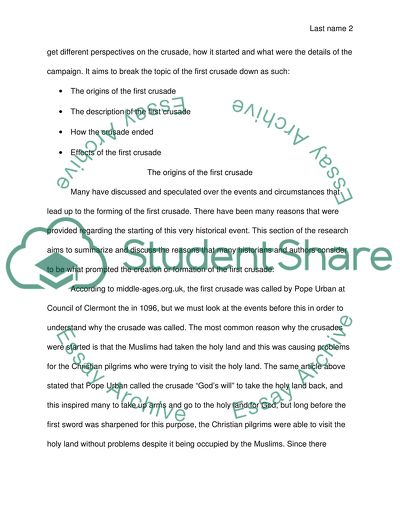Cite this document
(“The history of the first crusade Research Paper”, n.d.)
Retrieved from https://studentshare.org/history/1393430-the-history-of-the-first-crusade
Retrieved from https://studentshare.org/history/1393430-the-history-of-the-first-crusade
(The History of the First Crusade Research Paper)
https://studentshare.org/history/1393430-the-history-of-the-first-crusade.
https://studentshare.org/history/1393430-the-history-of-the-first-crusade.
“The History of the First Crusade Research Paper”, n.d. https://studentshare.org/history/1393430-the-history-of-the-first-crusade.


